Vauxhall Grandland vs VW ID.5 - Differences and prices compared
Compare performance (325 HP vs 340 HP), boot space and price (32600 £ vs 36800 £ ) at a glance. Find out which car is the better choice for you – Vauxhall Grandland or VW ID.5?
Costs and Efficiency:
When it comes to price and running costs, the biggest differences usually appear. This is often where you see which car fits your budget better in the long run.
Vauxhall Grandland has a somewhat advantage in terms of price – it starts at 32600 £ , while the VW ID.5 costs 36800 £ . That’s a price difference of around 4269 £.
In terms of energy consumption, the advantage goes to the VW ID.5: with 15.70 kWh per 100 km, it’s somewhat more efficient than the Vauxhall Grandland with 17.80 kWh. That’s a difference of about 2.10 kWh.
As for electric range, the Vauxhall Grandland performs somewhat better – achieving up to 694 km, about 135 km more than the VW ID.5.
Engine and Performance:
Power, torque and acceleration are the classic benchmarks for car enthusiasts – and here, some clear differences start to show.
When it comes to engine power, the VW ID.5 has a barely noticeable edge – offering 340 HP compared to 325 HP. That’s roughly 15 HP more horsepower.
In acceleration from 0 to 100 km/h, the VW ID.5 is to a small extent quicker – completing the sprint in 5.40 s, while the Vauxhall Grandland takes 6.10 s. That’s about 0.70 s faster.
In terms of top speed, the Vauxhall Grandland performs somewhat better – reaching 220 km/h, while the VW ID.5 tops out at 180 km/h. The difference is around 40 km/h.
There’s also a difference in torque: VW ID.5 pulls clearly perceptible stronger with 679 Nm compared to 509 Nm. That’s about 170 Nm difference.
Space and Everyday Use:
Cabin size, boot volume and payload all play a role in everyday practicality. Here, comfort and flexibility make the difference.
Both vehicles offer seating for 5 people.
In curb weight, Vauxhall Grandland is to a small extent lighter – 1675 kg compared to 1963 kg. The difference is around 288 kg.
In terms of boot space, the Vauxhall Grandland offers barely noticeable more room – 550 L compared to 549 L. That’s a difference of about 1 L.
In maximum load capacity, the Vauxhall Grandland performs hardly perceptible better – up to 1645 L, which is about 84 L more than the VW ID.5.
When it comes to payload, VW ID.5 minimal takes the win – 549 kg compared to 495 kg. That’s a difference of about 54 kg.
Who wins the race?
The Vauxhall Grandland proves to be won narrowly and therefore becomes our DriveDuel Champion!
Vauxhall Grandland is the better all-rounder in this comparison.
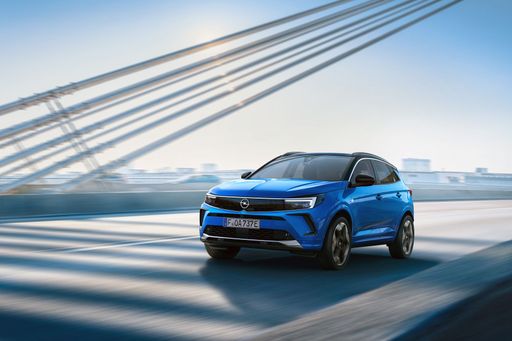
Vauxhall Grandland
Costs and Consumption
View detailed analysis
Engine and Performance
View detailed analysis
Dimensions and Body
View detailed analysis
Vauxhall Grandland
The Opel Grandland feels like a sensible, well-rounded SUV — neat styling, a spacious cabin and a composed ride that turns daily driving into a quietly pleasant experience. It’s a smart choice for buyers who want modern tech, good economy and a dash of German practicality without shouting for attention.
details
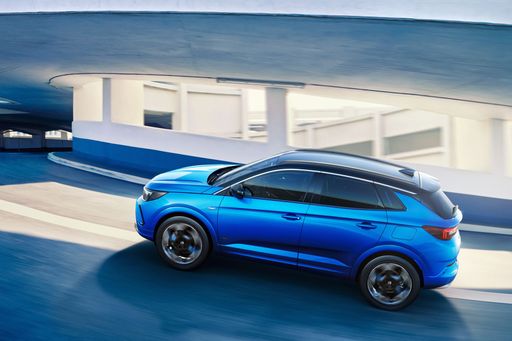

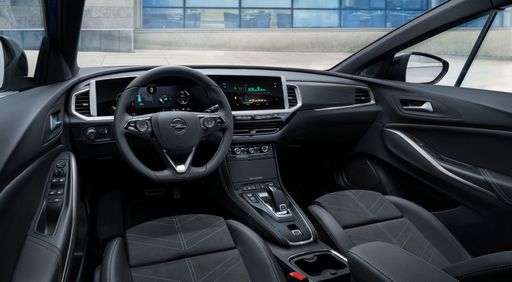
VW ID.5
VW ID.5 dresses electric power in a sleek, coupe-like profile that turns sensible motoring into something a touch more stylish and smug. Inside it’s spacious and user-friendly, with calm, confidence-inspiring driving that suits buyers who want EV simplicity without the sci‑fi theatrics.
details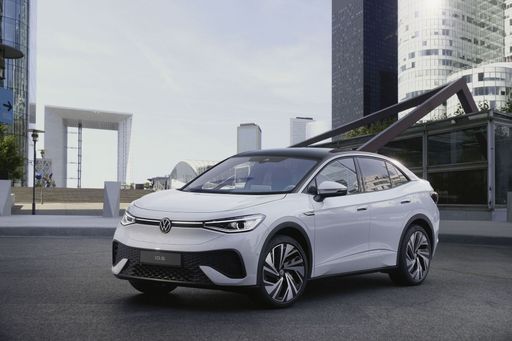
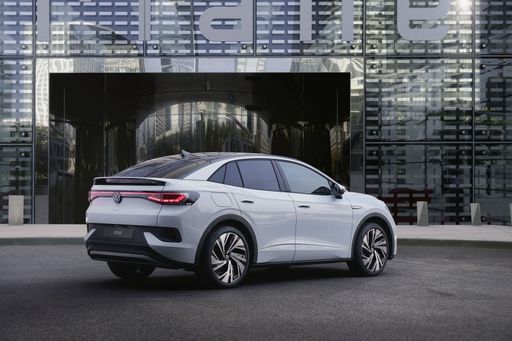
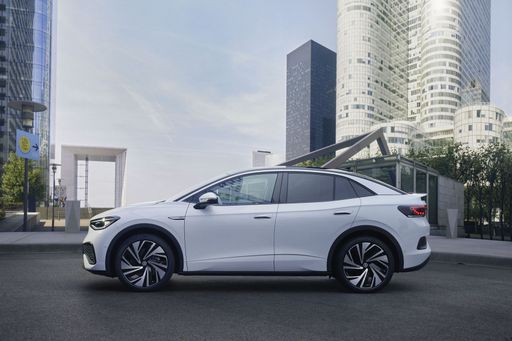
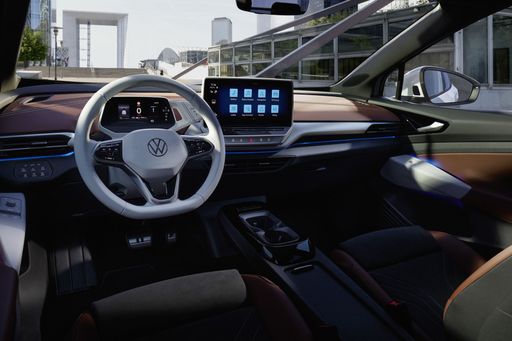
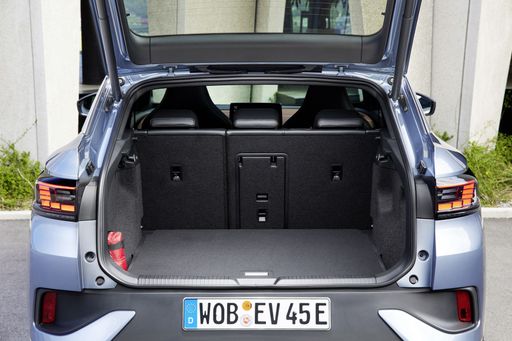
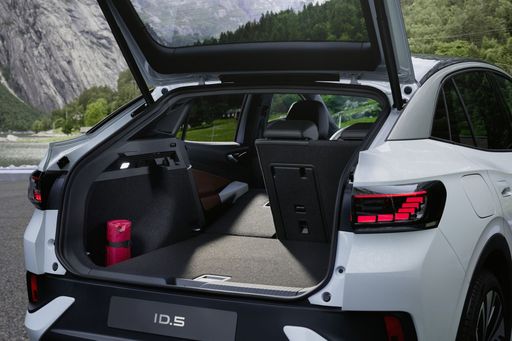
Costs and Consumption |
|
|---|---|
|
Price
32600 - 51400 £
|
Price
36800 - 48400 £
|
|
Consumption L/100km
2.6 - 5.6 L
|
Consumption L/100km
-
|
|
Consumption kWh/100km
17.8 - 18.6 kWh
|
Consumption kWh/100km
15.7 - 16.6 kWh
|
|
Electric Range
82 - 694 km
|
Electric Range
363 - 559 km
|
|
Battery Capacity
-
|
Battery Capacity
52 - 79 kWh
|
|
co2
0 - 126 g/km
|
co2
0 g/km
|
|
Fuel tank capacity
55 L
|
Fuel tank capacity
-
|
Dimensions and Body |
|
|---|---|
|
Body Type
SUV
|
Body Type
SUV
|
|
Seats
5
|
Seats
5
|
|
Doors
5
|
Doors
5
|
|
Curb weight
1675 - 2325 kg
|
Curb weight
1963 - 2233 kg
|
|
Trunk capacity
485 - 550 L
|
Trunk capacity
549 L
|
|
Length
4650 mm
|
Length
4582 - 4599 mm
|
|
Width
1905 mm
|
Width
1852 mm
|
|
Height
1665 mm
|
Height
1601 - 1618 mm
|
|
Max trunk capacity
1580 - 1645 L
|
Max trunk capacity
1561 L
|
|
Payload
425 - 495 kg
|
Payload
517 - 549 kg
|
Engine and Performance |
|
|---|---|
|
Engine Type
Electric, Petrol MHEV, Plugin Hybrid
|
Engine Type
Electric
|
|
Transmission
Automatic
|
Transmission
Automatic
|
|
Transmission Detail
Reduction Gearbox, Dual-Clutch Automatic
|
Transmission Detail
Reduction Gearbox
|
|
Drive Type
Front-Wheel Drive, All-Wheel Drive
|
Drive Type
Rear-Wheel Drive, All-Wheel Drive
|
|
Power HP
145 - 325 HP
|
Power HP
170 - 340 HP
|
|
Acceleration 0-100km/h
6.1 - 10.2 s
|
Acceleration 0-100km/h
5.4 - 8.9 s
|
|
Max Speed
170 - 220 km/h
|
Max Speed
160 - 180 km/h
|
|
Torque
230 - 509 Nm
|
Torque
310 - 679 Nm
|
|
Number of Cylinders
3 - 4
|
Number of Cylinders
-
|
|
Power kW
107 - 239 kW
|
Power kW
125 - 250 kW
|
|
Engine capacity
1199 - 1598 cm3
|
Engine capacity
-
|
General |
|
|---|---|
|
Model Year
2024 - 2025
|
Model Year
2024 - 2025
|
|
CO2 Efficiency Class
A, D, B
|
CO2 Efficiency Class
A
|
|
Brand
Vauxhall
|
Brand
VW
|
Is the Vauxhall Grandland offered with different drivetrains?
Available configurations include Front-Wheel Drive or All-Wheel Drive.




